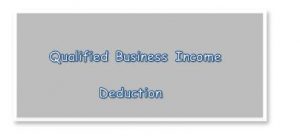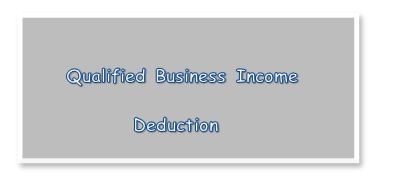Good News for Rental Property Owners; Qualified Business Deduction
Business Income Deduction for Taxpayer
 On September 24, 2019, the IRS issued Revenue Procedure 2019-38 now permitting certain taxpayers who hold an interest or interests in rental real estate to be treated as a trade or business for purposes of the Qualified Business Income Deduction (“QBID”) under 26 U.S.C. § 199A.
On September 24, 2019, the IRS issued Revenue Procedure 2019-38 now permitting certain taxpayers who hold an interest or interests in rental real estate to be treated as a trade or business for purposes of the Qualified Business Income Deduction (“QBID”) under 26 U.S.C. § 199A.
Under the new Revenue Procedure, an interest in real estate will be treated as a single trade or business for purposes of the QBID if it meets all of safe harbor requirements. Where all the requirements are not met, a taxpayer or other entity may, nevertheless, qualify as a trade or business for purposes of section 199A deduction, provided he or she otherwise meets the definition of a trade or business under Treas. Reg. § 1.199A-1(b)(14 ).
This safe harbor provision is limited to the QBID. In all other respects, where licensing of tangible or intangible property (rental activity) does not qualify as trade or business, Section 162, will apply.
Under the safe harbor provision, the IRS defines a Rental Real Estate Enterprise (the “Enterprise”) as an interest in real property held to generate rental or lease income. The Enterprise may consist of an interest in one or multiple properties. The Revenue Procedure further requires that a taxpayer or Relevant Pass through Entity (“RPE”) own the rental property directly or through a single member LLC or other entity that is disregarded for federal income tax purposes.
Real estate used by a taxpayer or RPE as a residence as well as real estate which is subject to a triple net lease is specifically excluded from the safe harbor provision.
Criteria for Consideration under Safe Harbor Provision
To qualify for the safe harbor provision under the Revenue Procedure the taxpayer or RPE must meet the following criteria:
- Books and records. A taxpayer or RPE must maintain separate books and records reflecting income and expenses for each rental property;
- Services required. In the case of an Enterprise that has been in existence less than four years, 250 or more hours of rental services must be performed each year. In all other cases, the Enterprise must perform 250 or more hours of rental services in at least three of the past five years;
- Contemporaneous records. The taxpayer or RPE must maintain contemporaneous records, in the form of time reports, logs, or similar documents, detailing the hours, dates and description of all services performed, and identifying who performed the services; and
- Statement attached to the tax return. Finally, in order to comply with the safe harbor provision, the taxpayer or RPE must attach a statement to the return filed for the tax year(s) the safe harbor is relied upon.
The new safe harbor rule should serve to encourage future investment in rental properties, since the QBID has the overall effect of increasing the internal rate of return to investors.





